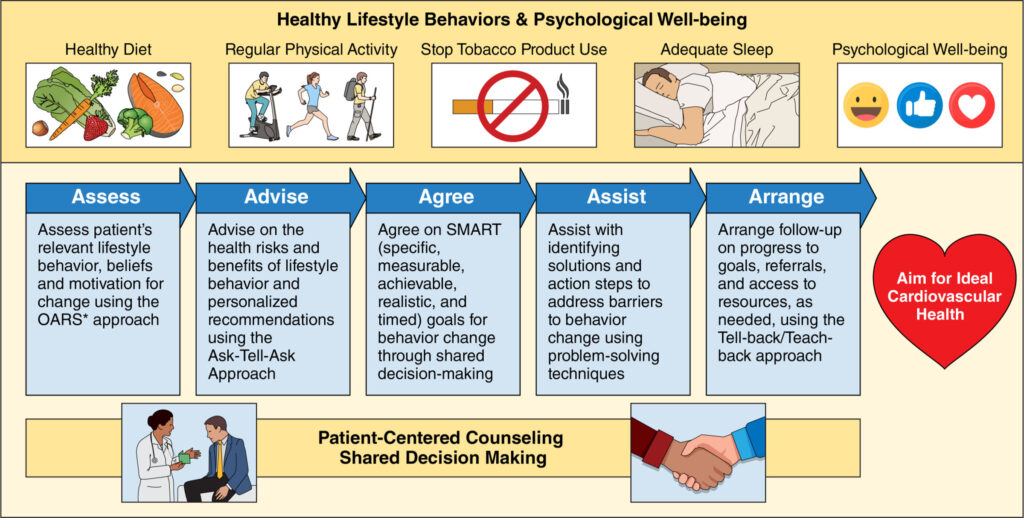This article explores science-backed lifestyle tips to naturally boost mood and energy. It covers the impact of nutrition, emphasizing key nutrients like complex carbohydrates, omega-3 fatty acids, and B-vitamins. It explains how exercise, especially aerobic and strength training, improves mental well-being through endorphin and dopamine release. The article also highlights the importance of quality sleep, hydration, and mindfulness practices like meditation and journaling. Additionally, it discusses the role of sunlight, social connections, screen-time management, and time prioritization. Finally, it introduces natural supplements and practical habit-stacking techniques to support long-term energy and positivity.

Introduction
In today’s fast-paced world, mental and physical fatigue are common struggles. From work-related stress to poor dietary habits, various factors drain our mood and energy. Thankfully, science offers numerous lifestyle tips that can naturally boost our vitality. In this article, we explore evidence-backed methods to enhance your mood and energy levels. Each section dives into crucial lifestyle elements, such as nutrition, exercise, sleep, and social interaction, offering practical steps to transform your daily routine.
The Role of Nutrition in Enhancing Mood and Energy
Fueling Your Brain With the Right Nutrients
The brain consumes about 20% of the body’s energy. Therefore, what we eat significantly impacts our cognitive performance and emotional well-being. Consequently, a balanced diet rich in complex carbohydrates, healthy fats, and protein supports neurotransmitter function.
Complex Carbohydrates
Complex carbs such as whole grains, fruits, and vegetables release glucose slowly. As a result, this prevents spikes and crashes in energy levels. Additionally, they promote the production of serotonin, a neurotransmitter associated with happiness.
Omega-3 Fatty Acids
Found in fatty fish like salmon and flaxseeds, omega-3s enhance brain function. Moreover, studies show a correlation between omega-3 intake and reduced symptoms of depression.
B-Vitamins and Iron
B-complex vitamins help in energy production and red blood cell formation. Iron, especially heme iron from meat sources, combats fatigue by improving oxygen transport in the blood. In turn, this leads to better overall energy levels.
Hydration: The Forgotten Key
Even mild dehydration can lead to fatigue and irritability. Indeed, water is essential for nutrient transportation and waste removal. Therefore, drinking enough water daily can significantly improve both physical energy and mental clarity.
Exercise: A Natural Mood Enhancer
The Science Behind the Endorphin Rush
Exercise releases endorphins, which are chemicals in the brain that act as natural painkillers and mood elevators. Thus, this explains why many feel euphoric post-workout.
Aerobic Activities
Running, swimming, and cycling increase heart rate and oxygen intake. Consequently, this boosts brain function and reduces anxiety.
Strength Training
Resistance exercises improve physical strength and stimulate the release of dopamine. As a result, this neurotransmitter is key to feeling motivated and satisfied.
Consistency Over Intensity
You don’t need intense workouts to feel the benefits. Instead, moderate, consistent exercise is more sustainable and just as effective in the long run.
Sleep: The Foundation of Well-being
Understanding the Sleep-Mood-Energy Connection
Sleep is when the body repairs tissues, consolidates memories, and regulates hormones. Without a doubt, lack of sleep leads to irritability, poor concentration, and low energy.
Sleep Hygiene Practices
- Stick to a consistent sleep schedule
- Avoid screens before bedtime
- Keep the bedroom dark and cool
Napping Smartly
Short naps of 20–30 minutes can recharge your mind without affecting nighttime sleep. In particular, they are helpful during mid-afternoon energy slumps.
Mindfulness and Mental Health Practices
Meditation and Deep Breathing
Mindfulness practices help regulate the stress response. For example, meditation and breathing exercises reduce cortisol levels, improving mood and energy.
Guided Meditation
Apps and online videos offer structured practices. Even just 10 minutes daily can make a noticeable difference.
Deep Breathing Techniques
Slow, deep breathing activates the parasympathetic nervous system. Consequently, this calms the body and clears mental fog.
Journaling and Gratitude
Writing down thoughts helps process emotions. Furthermore, gratitude journals shift focus to positive aspects of life, fostering a resilient mindset.
The Impact of Sunlight and Nature
Vitamin D and Mood Regulation
Sunlight exposure aids in vitamin D synthesis, which is crucial for serotonin production. Notably, low levels of vitamin D are linked to seasonal affective disorder (SAD) and depression.
Forest Bathing and Outdoor Activities
Spending time in green spaces reduces cortisol levels. Therefore, nature therapy improves mood and boosts energy by promoting relaxation and grounding.
The Importance of Social Connections
Oxytocin and Human Interaction
Positive social interactions release oxytocin, a hormone that fosters trust and bonding. As a result, this enhances emotional stability and reduces stress.
Building Meaningful Relationships
Invest time in family and friends. Indeed, genuine connections provide emotional support, which can buffer against life’s challenges.
Joining Communities
Engage in clubs, sports teams, or volunteer groups. By doing so, being part of a community gives a sense of belonging and purpose.
Limiting Screen Time and Digital Detox
The Energy Drain From Screens
Excessive screen time leads to mental fatigue. Moreover, blue light exposure, especially at night, disrupts melatonin production, impairing sleep quality.
Practicing Digital Balance
- Set screen-free times each day
- Use apps to monitor screen time
- Prioritize in-person interactions
Time Management and Setting Priorities
The Energy Cost of Poor Planning
Rushing through tasks without a plan increases stress and drains energy. Therefore, effective time management conserves mental resources.
Prioritization Techniques
- Eisenhower Matrix: Distinguish between urgent and important tasks
- Pomodoro Technique: Focus in short bursts with breaks
The Power of Saying No
Overcommitting leads to burnout. Hence, learn to decline tasks that don’t align with your goals or values.

Supplements and Natural Aids
When Diet Alone Isn’t Enough
Sometimes, even a healthy diet can fall short. Consequently, supplements can fill nutritional gaps and support mood and energy.
Adaptogens
Herbs like ashwagandha and rhodiola help the body adapt to stress. Thus, they improve stamina and reduce mental fatigue.
Magnesium and Vitamin D
These nutrients support muscle function and mental well-being. However, consult a healthcare provider before starting any supplement.
Habit Stacking and Routine Optimization
Creating Energy-Boosting Habits
Pair new healthy habits with existing routines. For instance, meditate right after brushing your teeth. This strategy increases adherence.
Morning Rituals
Starting the day with intention can set the tone. Therefore, consider stretching, journaling, or drinking warm lemon water.
Evening Wind-Down
An hour before bed, avoid stimulation. Instead, read, take a warm bath, or do gentle yoga.
Let food be thy medicine and medicine be thy food.
— Hippocrates
Conclusion
Improving your mood and energy doesn’t require drastic changes. On the contrary, small, consistent actions have a powerful cumulative effect. By prioritizing nutrition, exercise, sleep, mindfulness, and meaningful social interactions, you create a foundation for vitality. Altogether, these science-backed lifestyle tips empower you to live with more joy, clarity, and strength. So, start with one change today, and build your way to a more vibrant life.
